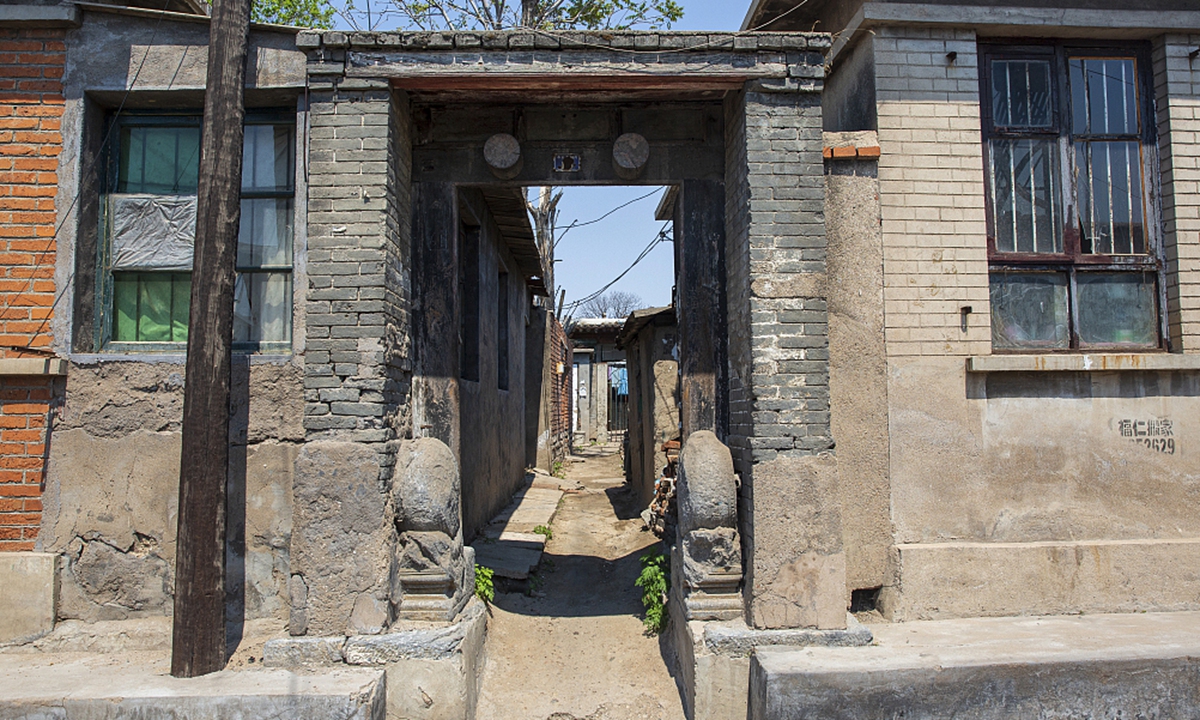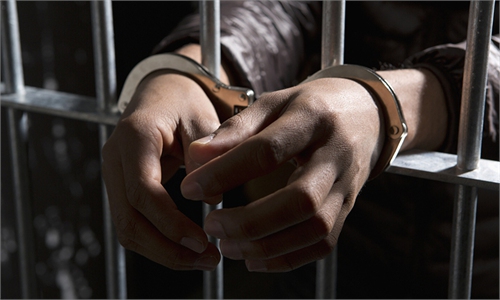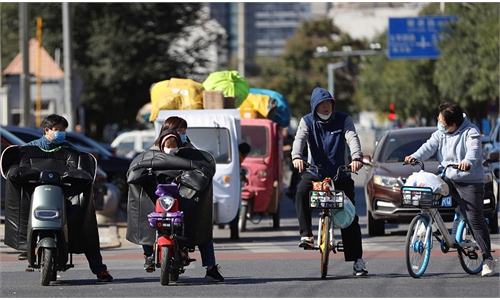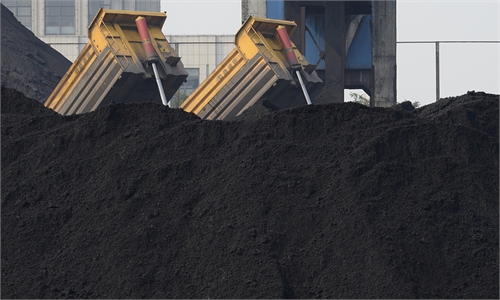Eastern end of the Great Wall of China improves clean heating methods for a warm winter

A residential house in the ancient city of Shanhaiguan district, Qinhuangdao, North China's Hebei Province Photo: VCG
The ancient city in Shanhaiguan district, Qinhuangdao, North China's Hebei Province has improved its clean heating methods to ensure a warm winter for local residents after media reported the local government had implemented a one-size-fit-all policy to promote clean heating, resulting in high cost for some residents.
Liu Youyou, head of the Shanhaiguan district said that the government will register local residents for free electric water-heated kang bed-stoves (Chinese traditional brick beds) with subsidies of about 1,500 yuan ($235.4) to each family for the installation, according to a report by China Media Group.
The Shanhai Pass, known as the first pass at the eastern end of the Ming Dynasty Great Wall, with a history of more than 600 years, has not yet used natural gas for heating because of the complex underground pipeline network.
Liu made the remarks after media reported that the local government prohibited the use of firewood and even blocked the stoves of residents following the ban on coal in 2019 in a bid to promote clean heating.
After banning coal and firewood, the government provided electric heaters as well the supporting electricity installations and subsidies for residents. However, some people still remained concerned for not being able to afford the bills with their low income.
According to government data, in November, the 1,700 households in the ancient city of Shanghaiguan district received a total of 215,000 yuan in subsidies for their electricity bills.
In order to address concerns of residents and promote the use of electric heating, Liu said in the report that the government will improve the electricity subsidies, including providing prepaying bills for residents and using the subsidies to add credit to their electricity meters rather than deposit them in bank accounts.
According to Liu, after many professional and technical arguments, the ancient city cannot implement a centralized heating system with natural gas due to the ancient buildings and complex underground pipeline network. Therefore, the government plans to gradually implement air heat pumps in the ancient city to address the long-term heating problem and ensure a warm winter for local residents.



